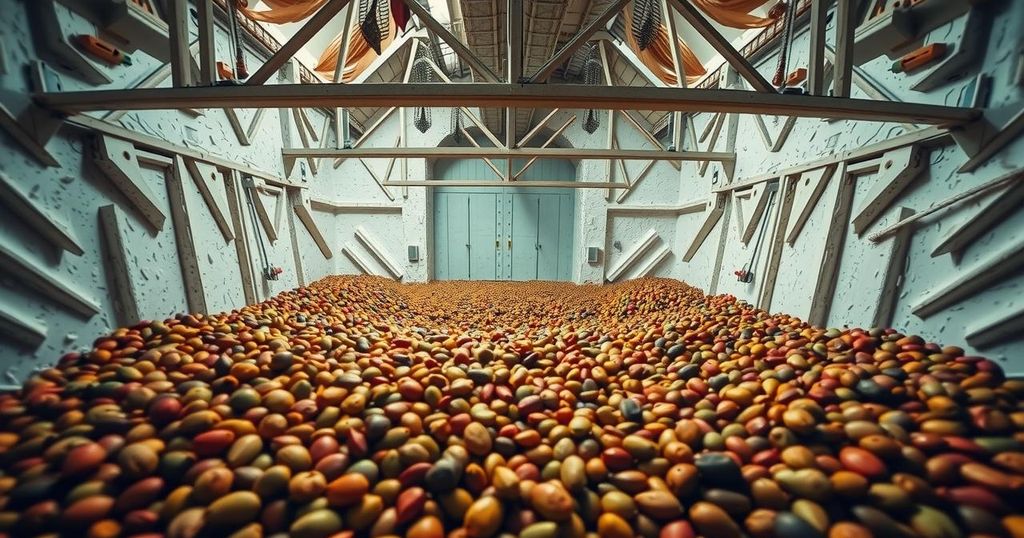A recent deposit to the Arctic’s Global Seed Vault included thousands of seed samples, notably 21 Palestinian species, amidst ongoing conflict in Gaza. The facility, opened in 2008, is critical for preserving global plant diversity against threats such as climate change and war.
On Wednesday, a significant deposit of seeds was made to the Global Seed Vault, often referred to as the “doomsday vault,” located in the Arctic. This latest addition includes thousands of seed samples from various regions, notably 21 Palestinian species consisting of vegetables, millet, and herbs, amidst ongoing conflict and food scarcity in Gaza. Established in 2008 in Norway’s Svalbard archipelago, the vault serves as a safeguard for the world’s plant diversity against potential threats such as natural disasters, warfare, climate change, and diseases. The recent collection involved over 30,000 seed samples from a record 23 organizations across 21 different nations, as reported by the Crop Trust, an organization partnering with the vault initiative. The Seed Vault, which resides within a mountain on Spitsbergen Island, approximately 1,300 kilometers from the North Pole, aims to preserve crop varieties necessary for feeding a burgeoning global population confronting the adverse impacts of climate change. Now home to roughly 1.3 million seed varieties, the facility allows seed owners to retrieve their samples at any time. The Palestinian seeds were provided by the Union of Agricultural Work Committees (UAWC), a local non-profit organization. Additionally, the Crop Trust anticipates another seed delivery from Sudan in February, a country also facing challenges related to war and famine. Stefan Schmitz, the director of Crop Trust, highlighted the overarching threats posed by climate change and conflict, stating, “Climate change and conflict threaten infrastructure and impact food security for over 700 million people in more than 75 countries worldwide.” The Seed Vault is strategically designed to withstand disasters, situated in an area safe from conflict, and built at an altitude sufficient to guard against rising sea levels. Even in the event of a refrigeration failure, the surrounding permafrost ensures that the vault remains at low temperatures.
The Global Seed Vault, which opened its doors in 2008, was established to create a secure backup of the Earth’s vital seed diversity. Located in Norway’s Svalbard archipelago, this facility provides a crucial resource for genebanks worldwide, aiming to preserve agricultural biodiversity in an era increasingly threatened by climate change, war, and ecological disruption. As plant species around the world face extinction due to various factors—including but not limited to environmental degradation, economic upheaval, and armed conflict—initiatives like the Seed Vault become essential for global food security and resilience against future crises.
The deposit of Palestinian seeds into the Arctic’s Global Seed Vault underscores the importance of preserving agricultural diversity amidst global crises. This facility, housing millions of seeds from various countries, serves as a vital insurance policy against the risks posed by climate change and conflict. The ongoing efforts to secure diverse seed samples reveal not only the urgency of addressing food security but also the collaborative spirit necessary for safeguarding our planet’s agricultural heritage.
Original Source: phys.org






